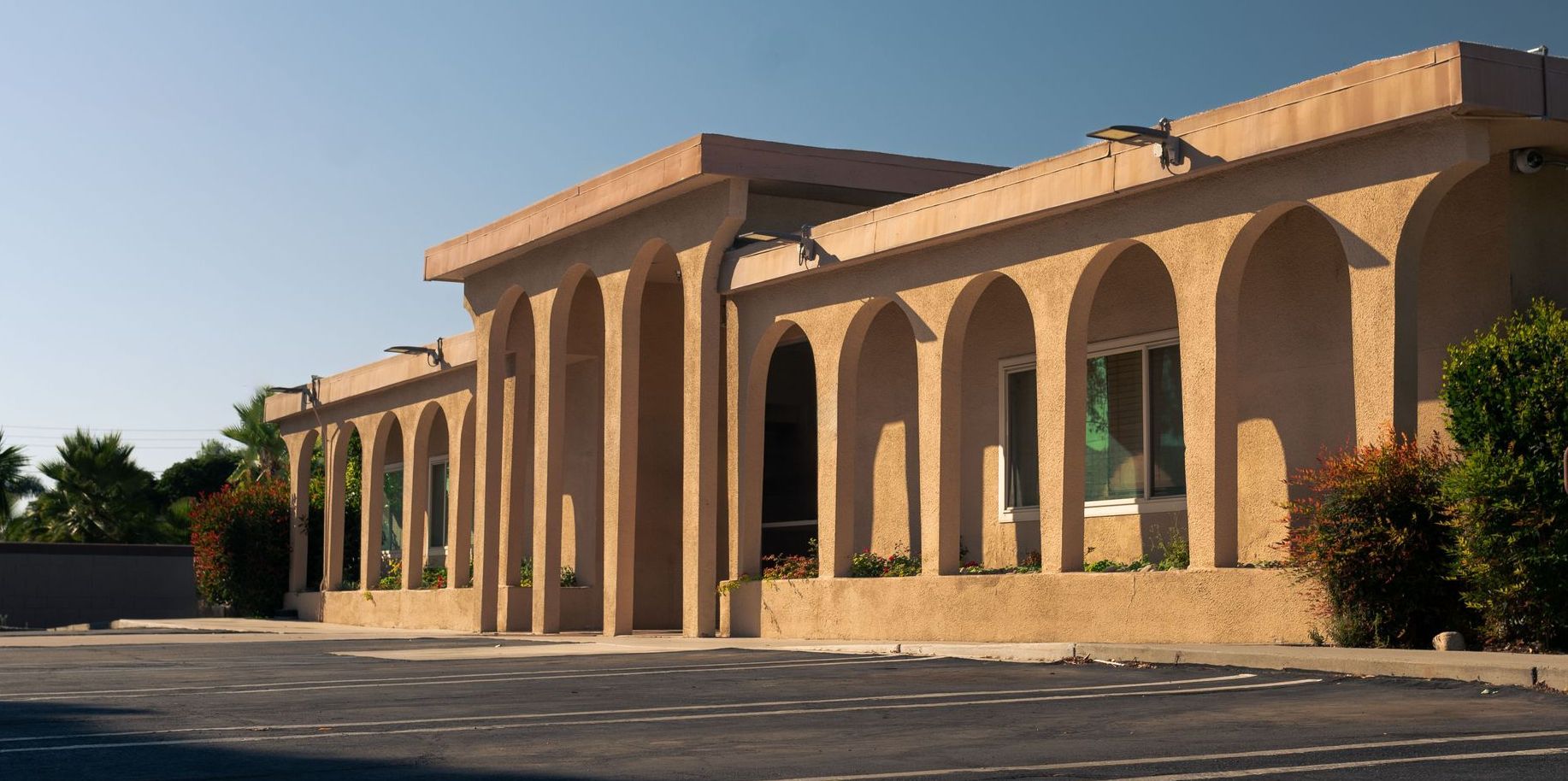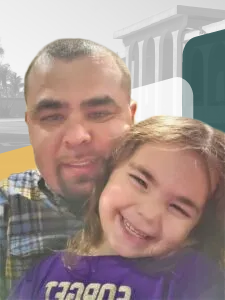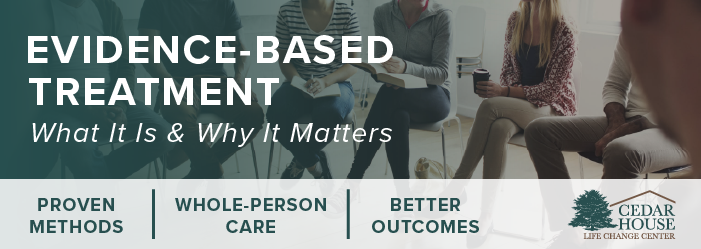Just Enough

Eduardo checked the gas gauge of his green Honda and realized he was almost empty. With no cash, no home, no job, and no family, he knew where he needed to go. And he had JUST ENOUGH gas in his tank to get there.
From the age of sixteen, Eduardo had been abusing drugs and alcohol. In the summer of 2005, he began hanging around a rough crowd and started smoking cigarettes, then weed, then meth. Rock bottom came three years ago when he and his fiancé moved to Las Vegas.
“I started stealing and lying; spending all my checks on gambling and drugs. I lost my fiancé; I lost my brother’s, my sister’s and my parents’ trust.”
Eduardo ended up living on the streets with only his car and his luggage. That’s when his brother told him about Cedar House, and Eduardo realized he had just enough gas to get there. He arrived at 10 p.m. on June 27, 2017.
He said, “I was tired. I just wanted to stop and relax. I didn’t want a pipe in my mouth.”
The next morning, he learned that Cedar House had a waiting list to be admitted into the residential program, but Eduardo had no place to go. He stayed outside in his car waiting until a bed came available. He spent the next 45 days at Cedar House working on changing his life.
Eduardo said, “At first, I didn’t like going to group (meetings), but eventually I thought to myself, ‘I’m setting myself up for failure.’ That’s when I started doing the work, especially learning about my triggers.”
Between learning certain types of music that triggered his addiction to meeting individuals who would significantly impact his life, the Cedar House experience made an indelible mark on Eduardo. He said, “When you’re trying to recover, you’re so vulnerable, but there were some amazing gentlemen that really helped me along.”
One man in particular changed the course of Eduardo’s life in a way he never expected. He said, “I made the decision to leave (Cedar House) because I had reached the peak of my withdrawal. I had so much going through my mind and so many emotions going through me. If I left, I would have just gone straight back to doing the same things, and things would be a whole lot different right now. But Michael stopped me. He sat me down and had a powerful chat with me. He calmed me down and gave me the strength to continue the program. That man really cares about the people at Cedar House.”
We couldn’t agree more. Michael Rodriguez is the Men’s Residential Coordinator at Cedar House and an EPIC Life Changer. We’re thankful to him for his compassion and persistence. And we’re thankful that Eduardo took his advice and persevered.
After graduating from Cedar House, he went to work at his brother’s restaurant. Soon after, he reconnected with his fiancé and children in Las Vegas where he began working at a facility making plastic polymers for medical devices. It’s work that has been steady for him and his family even during these challenging months of the pandemic.
Eduardo says he would not even consider doing drugs again now that he has made so many positive changes in his life. Thankfully, he had just enough gas in the tank and determination to continue with his treatment to change his life.


When someone is seeking help for drug or alcohol addiction, one of the most important questions to ask is: Is this treatment evidence-based? The answer can make a meaningful difference in recovery outcomes, safety, and long-term stability. At Cedar House Life Change Center, evidence-based treatment is the foundation of everything we do. Our programs are designed using approaches that are backed by research, clinical best practices, and decades of real-world experience serving individuals and families in the Inland Empire. What Does “Evidence-Based Treatment” Mean? Evidence-based treatment refers to therapies and clinical practices that have been scientifically studied and proven effective in treating substance use disorders and co-occurring mental health conditions. These approaches are recommended by national health authorities and continuously evaluated to ensure they improve outcomes. Unlike untested or purely anecdotal methods, evidence-based care relies on: Clinical research Outcome data Professional standards of care Ongoing evaluation and improvement In addiction treatment, this matters because recovery is complex, personal, and deeply impacted by mental health, trauma, and social factors. Why Evidence-Based Treatment Matters in Recovery Addiction affects both the brain and behavior. Effective treatment must address more than substance use alone. Evidence-based treatment: Improves engagement and retention in care Reduces relapse risk Supports mental health and emotional regulation Helps individuals build practical coping skills Increases long-term recovery success For families and referral partners, evidence-based care also provides confidence that treatment decisions are grounded in proven methods—not trends or shortcuts. Evidence-Based Treatment at Cedar House Cedar House has served adults seeking recovery for decades, and our treatment model continues to evolve based on best practices and community need. Structured, Research-Supported Curricula Cedar House utilizes well-established, evidence-based curricula, including: The Matrix Model, a structured approach shown to be effective in treating substance use disorders Living in Balance, a nationally recognized curriculum that addresses substance use, mental health, relapse prevention, and life skills These frameworks provide consistency while allowing flexibility for individual needs. Integrated, Whole-Person Care Evidence-based treatment recognizes that recovery is not one-size-fits-all. At Cedar House, clients participate in therapeutic groups and services that address: Substance use patterns Co-occurring mental health conditions Trauma and stress Family relationships Emotional regulation and coping skills This integrated approach supports both short-term stabilization and long-term recovery. Medication-Assisted Treatment (MAT) When clinically appropriate, Cedar House incorporates Medication-Assisted Treatment (MAT) as part of an evidence-based recovery plan. MAT is widely recognized as an effective tool for reducing cravings, supporting stabilization, and improving treatment retention, especially when combined with counseling and behavioral therapies. Individualized Services While evidence-based models provide the framework, treatment at Cedar House is always individualized. Clinical teams work with each client to develop a plan that reflects their history, goals, strengths, and challenges. T his balance between structure and personalization is a hallmark of effective evidence-based care. Why Evidence-Based Care Matters for Families and Referral Partners Choosing a treatment program is a significant decision. Evidence-based treatment offers reassurance that: Care is aligned with clinical standards Services are ethically and professionally delivered Treatment approaches are supported by research and outcomes Recovery planning is intentional and goal-oriented For referral partners, evidence-based programs help ensure continuity of care and better outcomes for the individuals they serve. A Commitment to Quality and Accountability At Cedar House, evidence-based treatment is not a buzzword. It’s a commitment. Programs are continually reviewed, staff are trained in best practices, and services are delivered with compassion, accountability, and respect for each individual’s recovery journey. Getting Help That’s Grounded in What Works If you or a loved one is exploring treatment options, understanding whether a program uses evidence-based approaches is an important first step. At Cedar House, treatment is grounded in what works because recovery deserves care that is informed, intentional, and proven. To learn more about Cedar House programs or to access services using private health insurance, explore the website or call 909-421-7120 today.

The holiday season can be joyful but also challenging. For many people, the holidays are a time of togetherness and celebration. But for those in recovery from substance use, this season can bring a mix of emotions -- joy and gratitude, but also stress, temptation, and pressure. Family gatherings, social events, and memories of past holidays can test even the strongest commitment to sobriety. At Cedar House Life Change Center, we understand these challenges. Our mission is to help individuals and families build lasting recovery through treatment, education, and ongoing support. Here are a few practical ways to protect your sobriety and stay connected to hope this holiday season. 1. Plan Ahead for Triggers Before attending a party or event, think about what might challenge your recovery. Bring your own non-alcoholic drink, drive yourself so you can leave early if needed, and connect with your sponsor or peer network before you go. Preparation gives you confidence and control. 2. Stay Connected to Your Support System The holidays can feel isolating, especially if you’re making lifestyle changes. Reach out to supportive friends, family members, or recovery peers who understand your journey. Schedule a check-in or attend a support group before and after big events. Staying connected helps you stay grounded. 3. Prioritize Self-Care Take care of yourself, physically, emotionally, and spiritually. Maintain regular sleep, eat balanced meals, get outside, and make time for reflection or prayer. A calm and nourished mind is your strongest ally in maintaining sobriety. 4. Set Boundaries and Say “No” Without Guilt You don’t have to attend every event or explain your choices. Declining an invitation or leaving early doesn’t make you antisocial. It makes you strong. Your recovery is your priority, and real friends and loved ones will respect that. 5. Keep Recovery at the Center of the Season Stay consistent with meetings, counseling, or alumni groups. Cedar House offers aftercare support, relapse prevention programs, and peer connections that help clients stay engaged long after treatment. Recovery doesn’t stop after discharge. It’s a lifelong process of growth and renewal. You Don’t Have to Do This Alone If you or someone you love is struggling this holiday season, Cedar House Life Change Center is here to help. Our compassionate team provides evidence-based treatment, medical support, and recovery programs designed to meet each person’s unique needs. Reach out today to learn how we can help you or your loved one find peace, purpose, and sobriety this holiday season and beyond.


Share On: